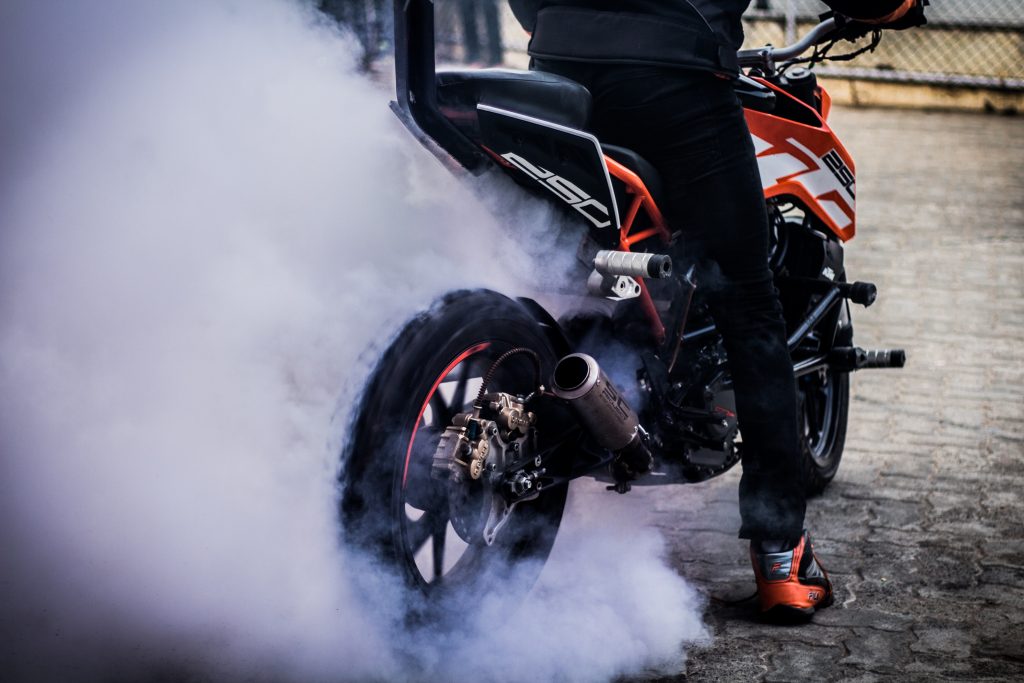In the United States, motorcycles are three percent of the total registered vehicles (2016). The year 2016 saw 8,679,380 registered motorcycles. Motorcycle riding is an enjoyable pastime, whether a bike is someone’s primary mode of transportation or they ride in their leisure time.
This fun experience can, unfortunately, be dangerous. Motorcycles don’t provide the physical coverage and protection that drivers and riders get from cars and trucks, increasing motorcyclists’ risk of injury or death while riding. The year 2015 saw 88,000 motorcycle injuries. Motor vehicle crashes can cause injuries that range from low to high severity and could become fatal. Close to 5,000 motorcycle riders died in road crashes that occurred in 2018.
In some cases, motorcycle accidents can cause just as much or more mental and emotional damage as they do physical damage. Surviving a motorcycle accident can be a common cause of developing Post-Traumatic Stress Disorder (PTSD). An estimated 25 or more percent of people involved in motorcycle accidents develop this disorder.
The American Psychiatric Association says PTSD is a psychiatric condition that can develop in people who experience and observe traumatic events, including war and combat, acts of terrorism, physical and sexual assault, rape, and natural disasters. This disorder can impact anyone, although risk factors include being female, having previous violent injuries, and having a history of depression. PTSD can stem from fatal and non-fatal motorcycle crashes, although the risk of this disorder developing increases in accidents where someone dies.
People typically receive PTSD diagnoses when they experience the repetition of involuntary, intrusive distressing thoughts, memories, and flashbacks of a traumatic event. Individuals with PTSD often have distorted beliefs about themselves and others and may detach themselves from other people. Emotional outbursts and ongoing fear and irritability can be telltale symptoms of PTSD.
Typical symptoms of PTSD include nightmares, panic attacks, and feelings of depression. Additional symptoms include a loss of self-esteem and feeling fearful and anxious about riding a motorcycle. It’s common for motorcycle crash victims, injured parties, and traumatized witnesses to avoid people, places, situations that remind them of the accident.
Psychological and clinical professionals use their knowledge and care to provide treatment and support and improve health outcomes for people with PTSD, anxiety disorders, depressive disorders, specific phobias, and other disorders. Seeking help from a premiere mental health practice, such as Baltimore Therapy Group, gives people guidance and support for mental health challenges and conditions. In group therapy sessions at Baltimore Therapy Group, patients receive the views and reactions of the therapist and other patients. Such therapy can help people learn communication skills and how to feel better about who they are.
Following an accident, people who develop PTSD and those who don’t deserve a recovery period. The time it takes to recover from the physical or mental pain caused by a crash can keep people from work and result in a loss of income. Additionally, people involved in motorcycle crashes may acquire medical bills that they could have difficulty paying.
Motorcyclists and their families should consult an attorney for legal aid following incidents that caused mild or severe injuries, PTSD, and other damages. Seeking legal counsel is a way of protecting oneself after a crash. Consulting the law offices of Daniel Kim, a motorcycle accident lawyer in Orange County ensures people that receive the fair compensation they deserve. Injured motorcyclists can concentrate on their physical, emotional, and mental recovery, while an experienced team of legal experts support them and fight on their behalf.
Entrusting mental health professionals and legal experts with one’s life circumstances following a motorcycle accident can help someone deal with PTSD and have the recovery they deserve.

